 myCSUSM
myCSUSMCertification in Planning and Inventory Management Prep
Overview
CSUSM is proud to partner with ASCM San Diego to offer the Certified in Planning and Inventory Management (CPIM) certification exam preparation program. APICS CPIM certification is recognized worldwide as the standard in production and inventory control, one of the most critical functions within an organization for reducing costs and achieving a competitive edge.
Program Details
- AUDIENCE
This certification prep course is designed primarily for:
- Individuals seeking CPIM certification
- Supply chain professionals looking to advance their career
- SCHEDULE, REGISTRATION & FEES
Course Dates Registration CPIM V8.0
Tuesdays, Sept. 17, 2024 - Jan. 28, 2025
Course Details and Fees
- Classes will be held in person at the CSUSM campus on Tuesdays from 6-9 p.m.
- Parking information will be emailed one week prior to the start of the program
- Program fees: refer to the APICS San Diego website
Fee Includes
- APICS 2024 CPIM V8.0 Learning System
- Parking at the CSUSM campus
*Please note: All rates are subject to change without notice.
- COURSE TOPICS
CPIM V8.0: Advanced Supply Chain for Internal Operations
(formerly MPR, DSP, SMR & ECO)CPIM V8.0 is the new 16-week (three hours per session) instructor-led course for production and inventory management personnel and CPIM candidates.
This in-person instructor-led course combines the comprehensive CPIM Learning System with the guidance of an APICS-recognized instructor and provides valuable peer discussion and networking.
Thousands of employers around the world look for the ASCM CPIM designation when making critical hiring decisions. These companies know that ASCM CPIM designees have the proven knowledge and skills to strategically streamline operations. The APICS CPIM is designed for production and inventory control professionals across all industries.
To earn the CPIM designation, a professional must pass one exam to demonstrate mastery of essential terminology, concepts, and strategies related to production and inventory management. The San Diego Chapter of ASCM is partnering with CSUSM Extended Learning to offer courses designed to prepare professionals for each of the certification exams.
The CPIM Learning System content is divided into eight modules. The concepts and best practices you learn will help you elevate your job performance, drive improvement in the efficiency of planning and operations and make a positive impact on your organization’s overall bottom line.
- Module 1: Supply Chains and Strategy
- Module 2: Sales and Operations Planning
- Module 3: Demand
- Module 4: Supply
- Module 5: Detailed Schedules
- Module 6: Inventory
- Module 7: Distribution
- Module 8: Quality, Technology and Continuous Improvement
- FAQ
What services do you offer to active military, veterans and dependents
View veteran and military services and funding options
Why should I earn the CPIM designation?
- Increase your salary - on average, designees see a 25% increase
- Improve your hiring potential by 65%
- Career advancement
- Professional growth
- Increased credibility and recognition
- Demonstrated commitment to advancing your career and your company’s operations
Information pulled from the APICS CPIM site
Do I need to take the exam after class or will classwork and tests satisfy the certification requirement?
This cours is a certification exam preparation program only. For exam and certification eligibility, please refer to www.apics.org/certification for additional information.
Do I get the certification after CPIM V8.0?
After completing this course, you will need to take an additional exam (not included in CSUSM fees or course). Please refer to www.apics.org/certification for additional information.
How can I be considered for an instructor position or send in a course proposal?
Thank you for your interest in becoming an instructor! Please contact Cathy Scavone (cscavone@csusm.edu) to receive an application and course proposal form.
How often do I need to come to campus for classes?
Students are typically asked to come to campus one evening per week for classes.
Earning your CPIM credential makes you a recognized expert in internal operations and prepares you to stay competitive in today’s economy
Increase your knowledge of production and inventory management while learning how to maximize ROI on the systems and technologies within your organization
Learn from an experienced instructor who provides expertise, insights and one-on-one guidance
Course sessions include a combination of lectures, discussions, videos, quizzes and flashcards and you will have access to online study tools for a full year
According to PayScale.com, inventory control managers can earn between $39,000 and $84,000. Geographic location and career duration impact pay for this position. Positions in inventory control can lead to roles as warehouse manager, supply chain manager, purchasing manager and more.
Extended Learning









